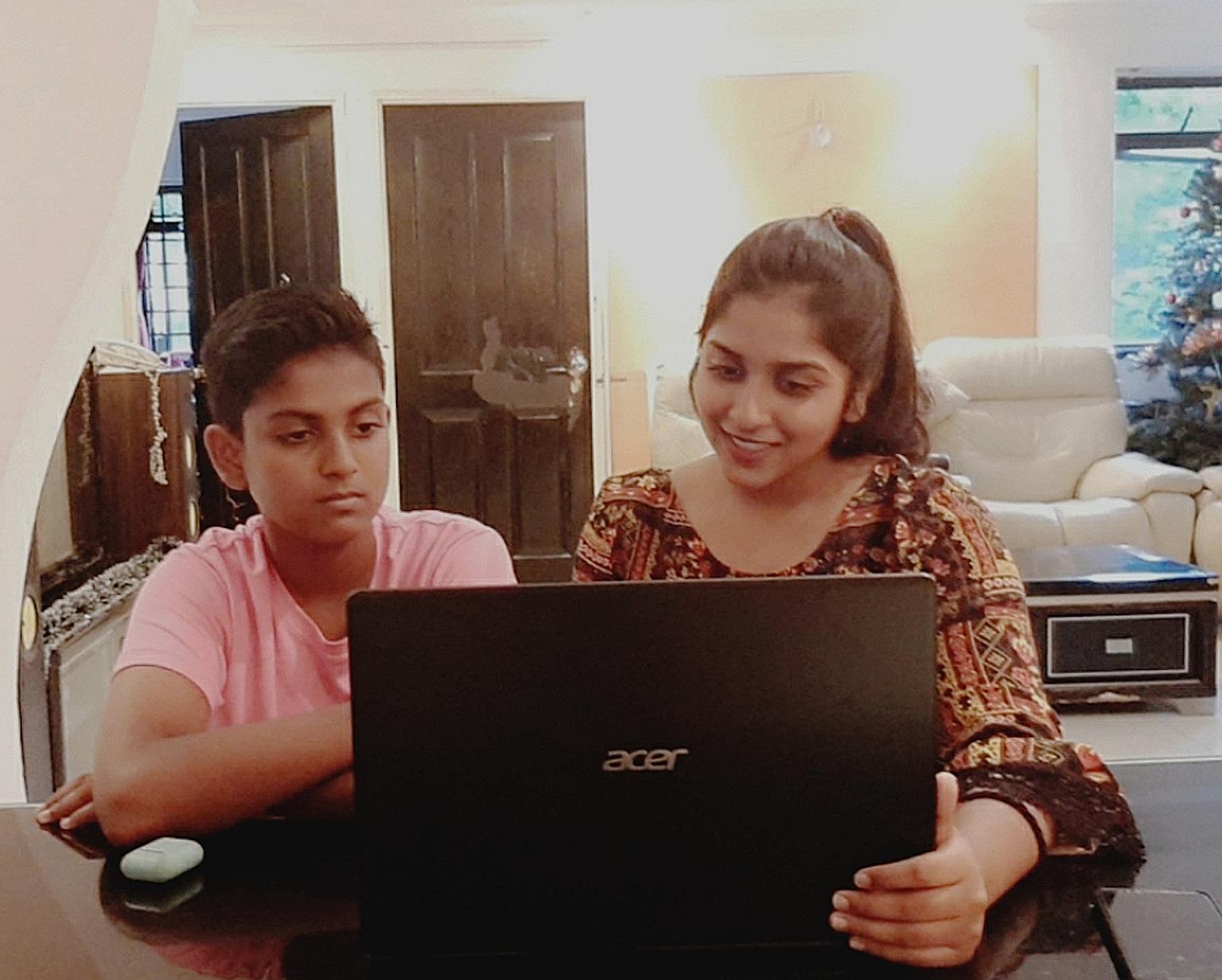5-room flat in the north
Getting a free laptop under govt assistance scheme
Sign up now: Get ST's newsletters delivered to your inbox

Sheryl Shivani, with her brother Gerald Giresh Raj, says she can complete her online assignments faster now that she has a laptop. In the past, she relied on her mobile phone, which could not support all the features she needed for e-learning.
PHOTO: COURTESY OF CYNTHIA JYANTHI
Sheryl Shivani, 17, had been dreading the start of full-time home-based learning (HBL).
Worried about not being able to keep up with studying for her O levels this year, she remembers the disastrous unfolding of a recent e-assignment she did on her smartphone, a device that is not suited for HBL.
It was tedious opening multiple tabs on her mobile phone, which could not support all the features she needed for the lesson. She could not finish her history assignment in the end.
She resolved to save up for a laptop of her own by skipping lunch at school.
"I didn't want to share my feelings as I was embarrassed and sad. I would spend my lunchtime chilling out with my friends and go home to eat," says Sheryl, who is in Secondary 5.
Neither did she want to ask her mother, a single parent, to buy the gadget for her.
"I know Mummy's situation and how hard she needs to work for us. I saved up a few years ago to buy my mobile phone. I'm good at saving money," she says.
Her mother, Ms Cynthia Jyanthi, who declined to give her age, is a nurse at a nursing home.
She communicated her anxiety about Sheryl's lack of a laptop to her teacher.
"I work long hours. While I may be able to sit with them for a while, I cannot follow through. I do ask them if they need any help and I've been interacting with their teachers," says Ms Cynthia, who also has two sons.
Her younger son, Secondary 1 student Gerald Giresh Raj, 13, is using a laptop on loan from his school for HBL, while her older son, 19, is waiting to enlist in national service.
Ms Cynthia's 68-year-old mother, who had a cardiac arrest in recent months and uses a wheelchair, also lives with her.
Luckily, help arrived when Sheryl's teacher notified her of the NEU PC Plus programme, which is administered by the Infocomm Media Development Authority (IMDA).
It offers low-income households and persons with disabilities the opportunity to own a computer at a subsidised rate. Successful applicants get a desktop or laptop and three years' free broadband subscription.
Ms Koh Li-Na, assistant chief executive for IMDA's Digital Readiness Cluster, says: "Since circuit breaker measures were announced on April 3, we have seen an increase of more than five-fold in the number of inquiries."
She attributes the rocketing interest to expanded support for students under the Ministry of Education's (MOE) Financial Assistance Scheme.
Because Sheryl met the criteria for the MOE scheme, she received a free laptop last week.
HBL is a breeze for her now and she spends less time on her online work.
"With this new laptop, I've learnt a few things like how to use MS Word and how to submit assignments via Google Classroom. It's much faster," she gushes.
"I'm amazed that I have my own laptop to use. Finally, I can do something that my friends had been doing all this time."


